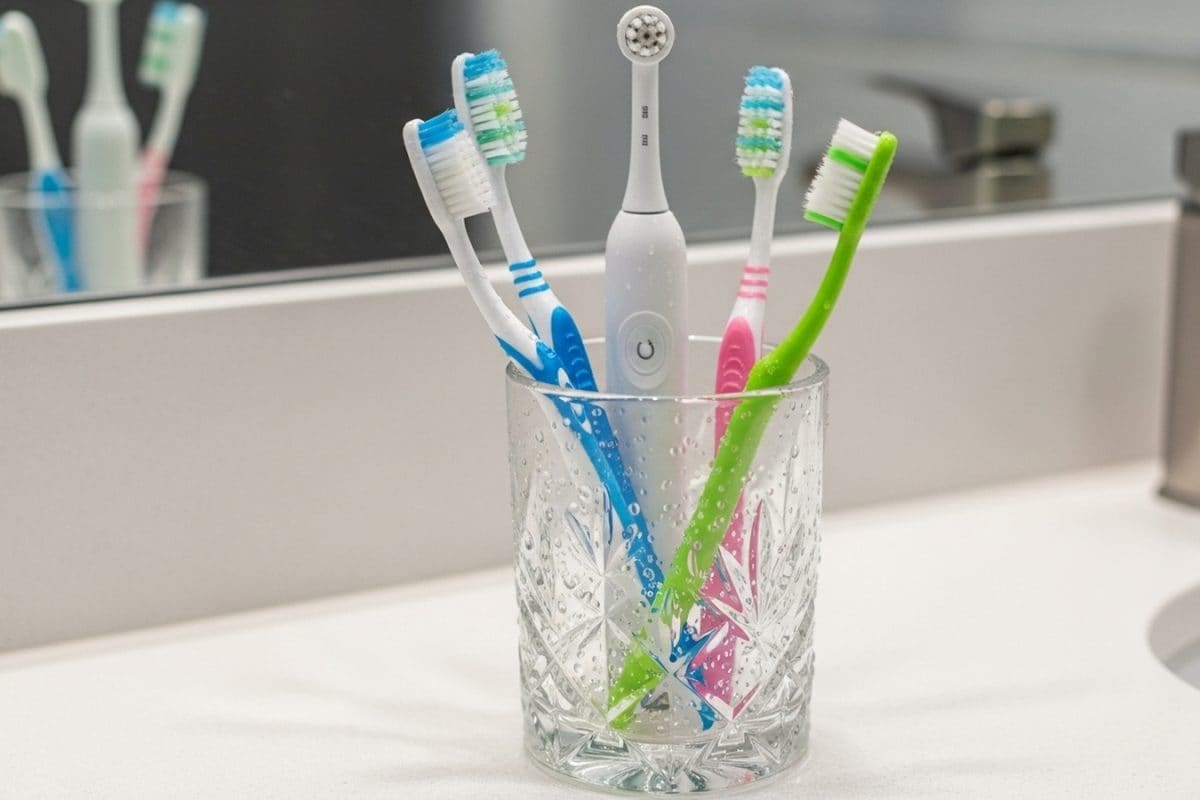Health
Replace Your Toothbrush Every 3 Months for Optimal Oral Health

Maintaining oral hygiene is essential for overall health, and an often overlooked aspect is the replacement of toothbrushes. Dentists recommend changing your toothbrush every three to four months to ensure effective cleaning against plaque, cavities, and bad breath. As bristles wear down over time, their ability to clean diminishes, potentially harming your oral health.
Recommended Replacement Timeline
According to dental professionals, the ideal timeframe for replacing a toothbrush is every three to four months. After this period, bristles can become frayed and lose their effectiveness in removing plaque and food particles. If your toothbrush shows signs of wear before reaching the three-month mark, it is advisable to replace it immediately.
Importance of Regular Replacement
The significance of regularly replacing your toothbrush cannot be overstated. Fresh bristles provide better cleaning power, reaching between teeth and along the gum line more effectively. Furthermore, older brushes can harbor harmful bacteria, yeast, and even mould, jeopardizing your oral health. Worn-out bristles may also irritate your gums instead of protecting them, which can lead to further complications.
In addition, a clean toothbrush contributes to overall hygiene. It helps prevent various oral health issues, including cavities, gum disease, and persistent bad breath.
When to Replace Sooner
There are certain situations that may necessitate replacing your toothbrush sooner than the three-month guideline. For instance, after recovering from an illness such as a cold or throat infection, it is wise to discard your old toothbrush to eliminate any lingering germs. Additionally, if the bristles begin to bend or fray, it is a clear sign that the toothbrush is no longer effective.
Parents should also be mindful of their children’s toothbrushes. Children often brush with more force, leading to quicker wear and tear. As a result, their toothbrushes may need to be replaced more frequently.
Electric vs. Manual Toothbrushes
For those who use electric toothbrushes, the same replacement rule applies. Brush heads should be replaced every three to four months as well. Due to the faster motion of electric brushes, it is essential to check the bristles regularly, as they may wear down more quickly.
Caring for Your Toothbrush
Proper care can extend the life of your toothbrush and maintain its hygiene between replacements. After each use, rinse the brush thoroughly to remove toothpaste and debris. Store it upright in a well-ventilated holder, allowing the bristles to air dry. Avoid keeping your toothbrush in a closed container, as moisture can promote bacterial growth. It is also crucial to refrain from sharing toothbrushes, as this can transmit germs and compromise oral health.
In summary, to uphold optimal oral hygiene, replace your toothbrush every three months or sooner if signs of wear appear. This practice, combined with proper brushing techniques, regular flossing, and routine dental checkups, can contribute significantly to a healthy smile.
-

 World5 months ago
World5 months agoSBI Announces QIP Floor Price at ₹811.05 Per Share
-

 Lifestyle5 months ago
Lifestyle5 months agoCept Unveils ₹3.1 Crore Urban Mobility Plan for Sustainable Growth
-

 Science4 months ago
Science4 months agoNew Blood Group Discovered in South Indian Woman at Rotary Centre
-

 World5 months ago
World5 months agoTorrential Rains Cause Flash Flooding in New York and New Jersey
-

 Top Stories5 months ago
Top Stories5 months agoKonkani Cultural Organisation to Host Pearl Jubilee in Abu Dhabi
-

 Sports4 months ago
Sports4 months agoBroad Advocates for Bowling Change Ahead of Final Test Against India
-

 Science5 months ago
Science5 months agoNothing Headphone 1 Review: A Bold Contender in Audio Design
-

 Top Stories5 months ago
Top Stories5 months agoAir India Crash Investigation Highlights Boeing Fuel Switch Concerns
-

 Business5 months ago
Business5 months agoIndian Stock Market Rebounds: Sensex and Nifty Rise After Four-Day Decline
-

 Sports4 months ago
Sports4 months agoCristian Totti Retires at 19: Pressure of Fame Takes Toll
-

 Politics5 months ago
Politics5 months agoAbandoned Doberman Finds New Home After Journey to Prague
-

 Top Stories5 months ago
Top Stories5 months agoPatna Bank Manager Abhishek Varun Found Dead in Well









